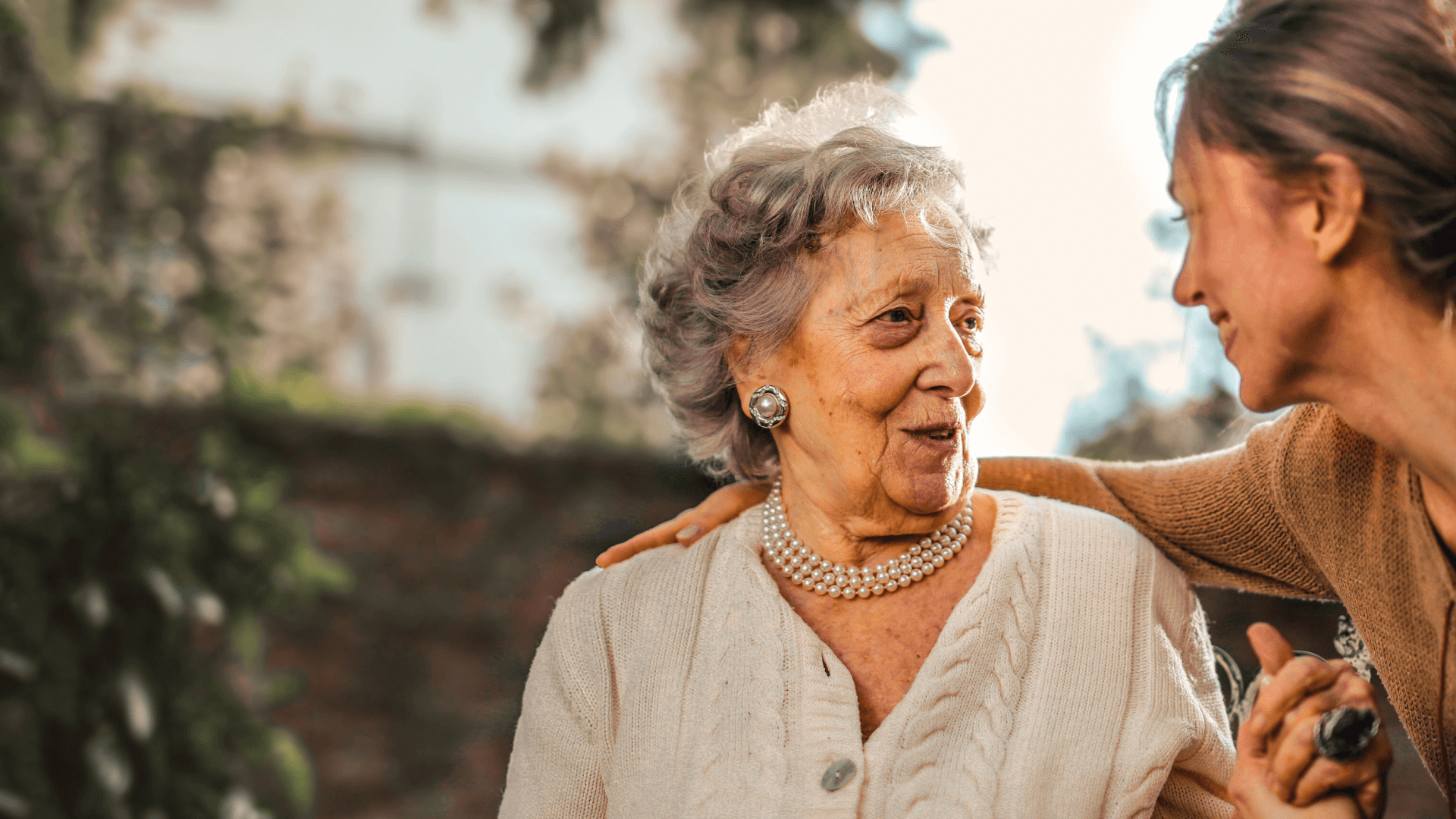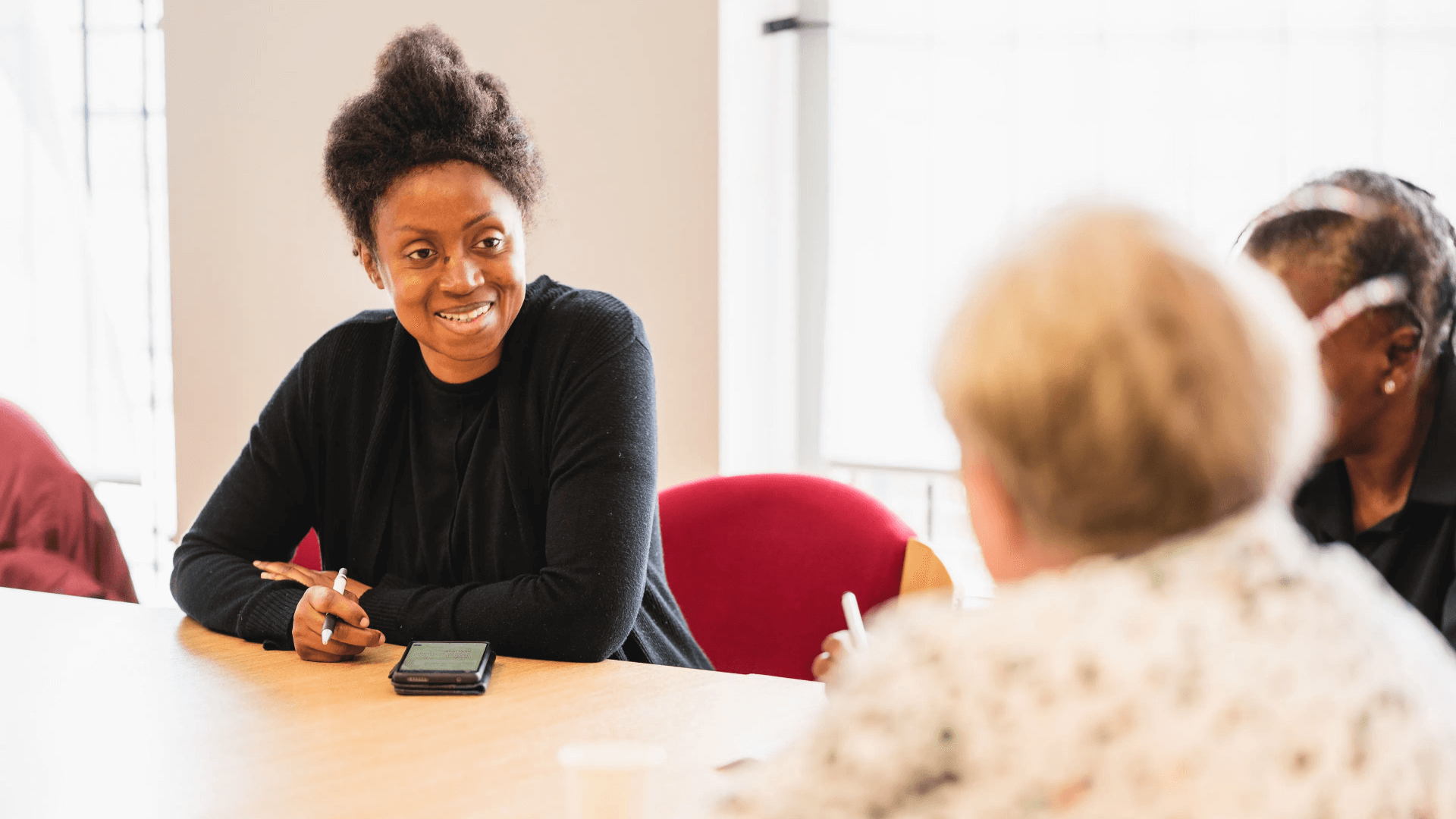Why do people struggle to identify as a carer?
New study, new data and new rationale on why people find it hard to identify as a carer
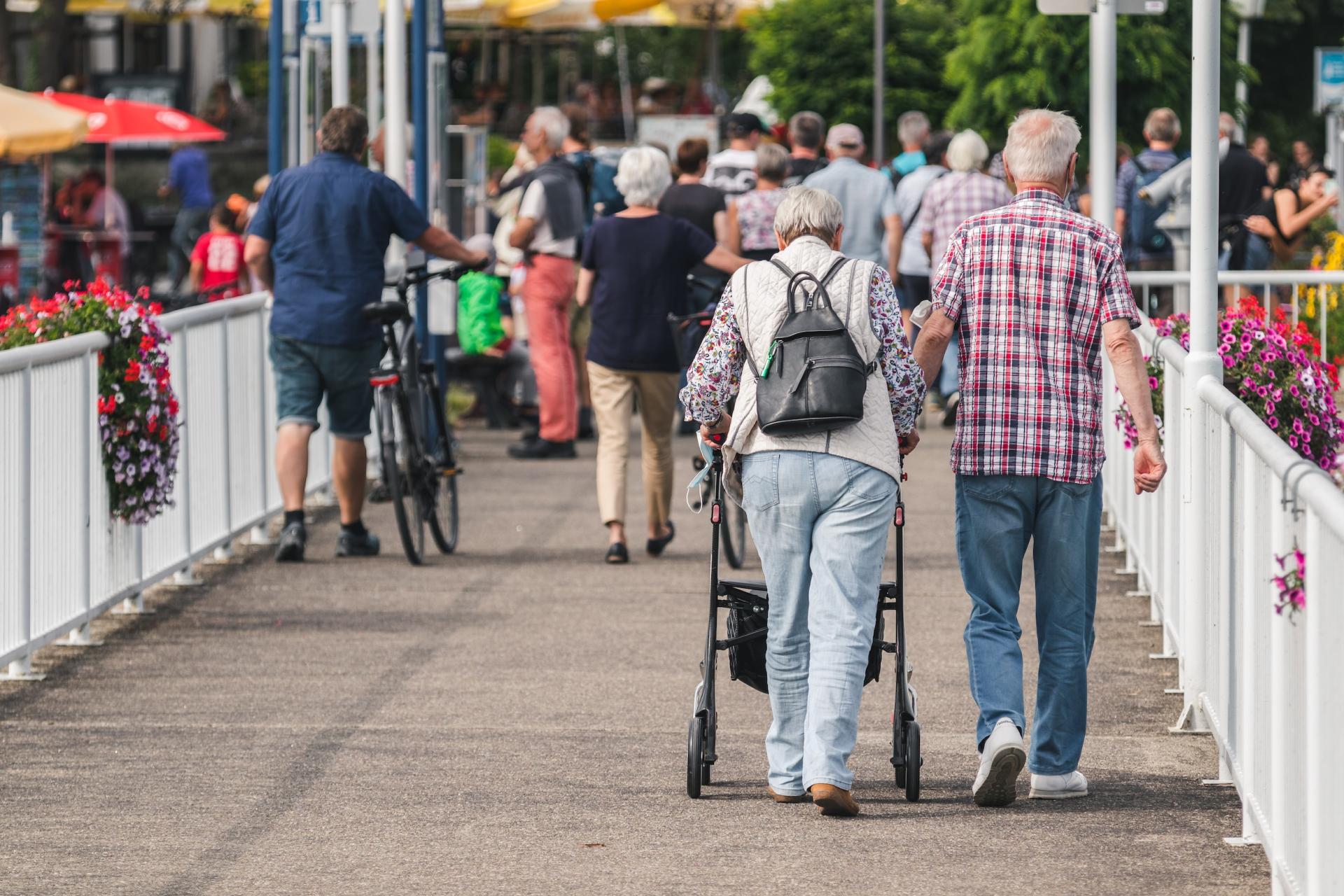

Robin Hill
|
Copywriter
11 July 2023
We’ve said it before and we’ll say it again. There are lots of people that perform caregiving responsibilities for an elderly loved one and not realise they are a carer themselves. And now, there’s more data to support this theory. Carers Week charities commissioned YouGov to conduct a survey which found:
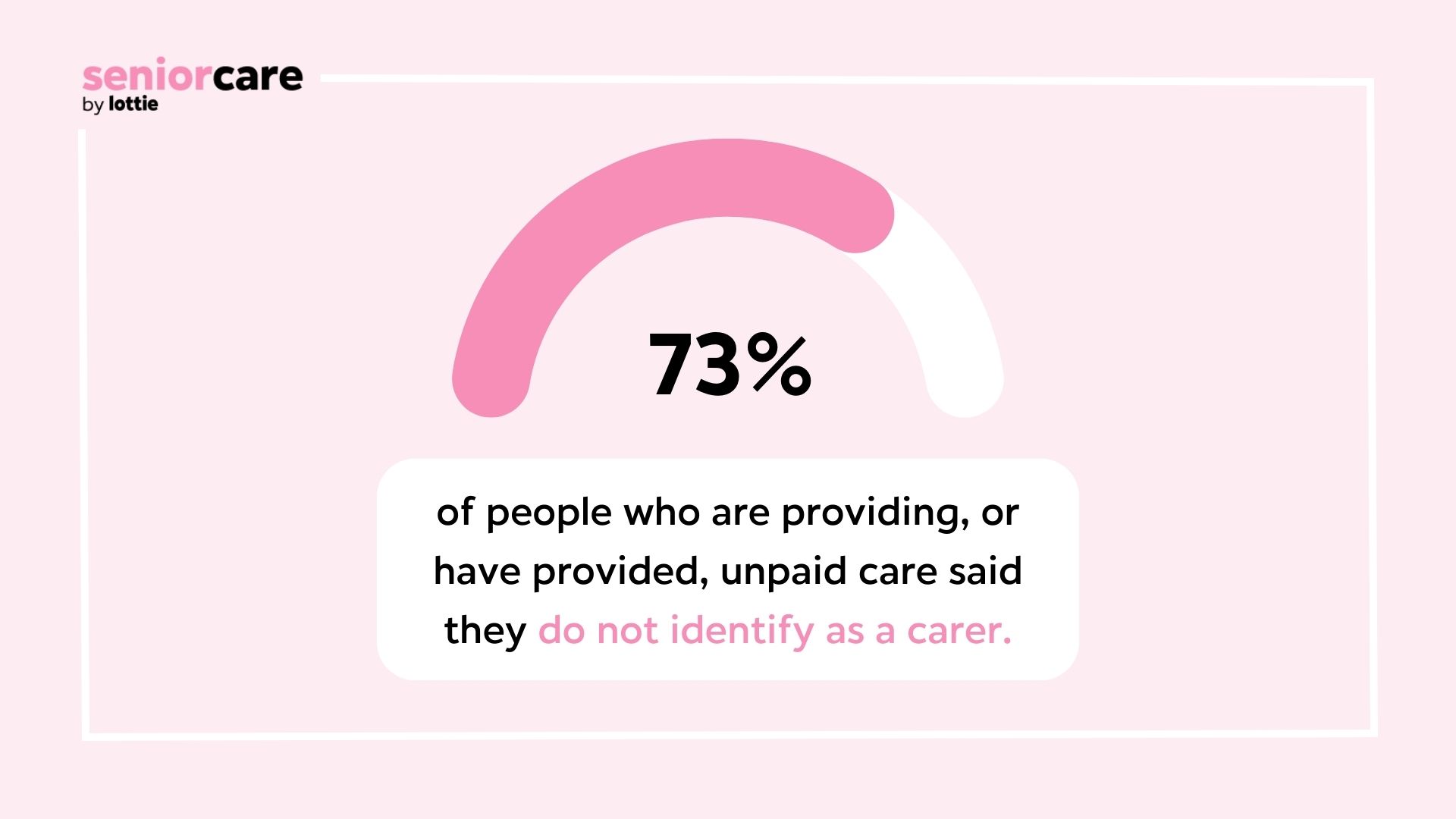
That’s right, nearly ¾ of people who currently provide or have provided care do not call themselves a carer. This piece of data suggests that a majority of unpaid caregivers may not be receiving the information, advice or support they need to help them with their caregiving role.
Based on this polling, it is estimated that 19 million people in the UK have provided unpaid care or support, but not identified themselves as a carer.
How many people identify themselves as carers?
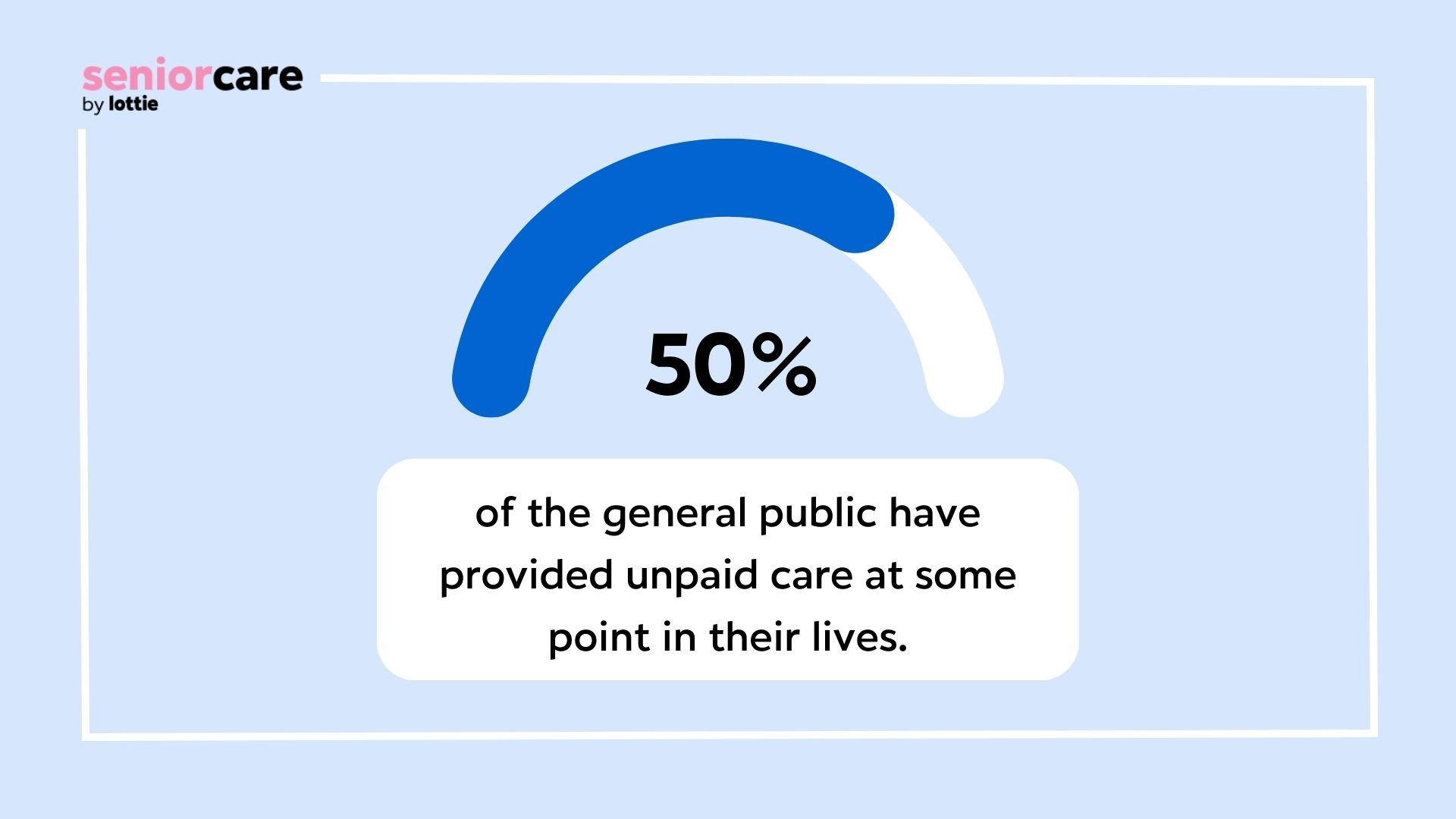
The polling by YouGov also suggests that half of the general public have provided unpaid care at some point.
20% of the cohort said that they are currently giving unpaid support.
30% said they are not currently provided unpaid care, but have done in the past.
And 43% said they are not currently providing care or have done so in the past.
When properly scaled with the ONS population data, these statistics estimate that 10.6 million people provide unpaid care in the UK. This is, of course, a very different story than what was found in the 2021 Census, which suggested only 5.7 million people in the UK provided unpaid care.
So, why such a stark difference?
The ONS have stated that the Census’ smaller proportion of unpaid carers may have been down to the way their question on unpaid carers was worded. Due to the nuanced nature of caregiving, it could be conceived that two people who provide the exact same care for a loved one, may disagree on whether that is definitive care. Caring for an elderly family member has very ambiguous definitions. An idea which is backed up by the Carers UK’s State of Caring 2022 survey.
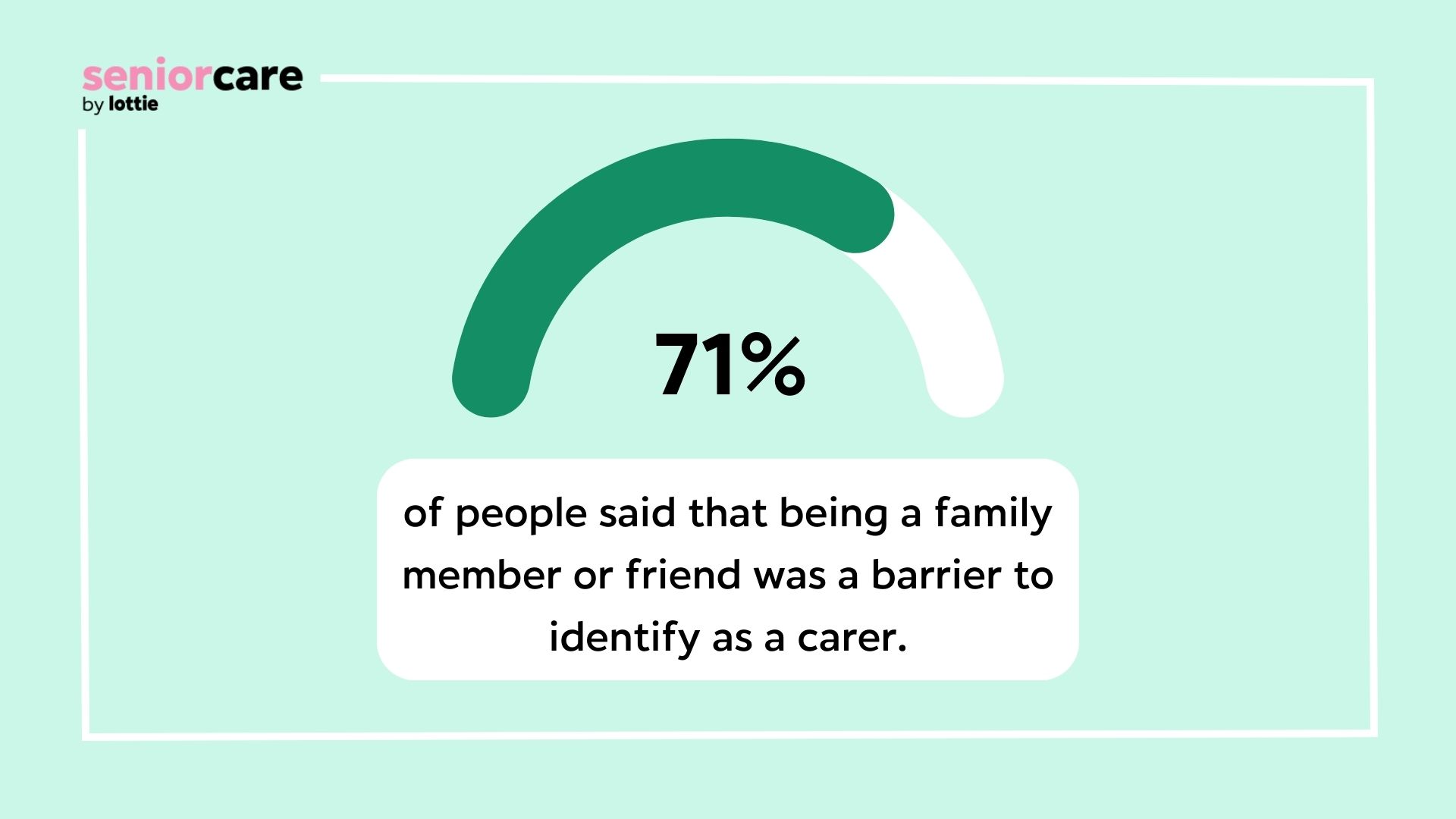 71% of carers, who took a while to identify themselves as a carer, said that being a family member or friend was a substantial barrier to identification. Perhaps calling themselves a carer devalues the relationship between themself and the person being cared for. Others might feel that taking care of a loved one is a duty and an inevitable circumstance, rather than a role which one takes up.
71% of carers, who took a while to identify themselves as a carer, said that being a family member or friend was a substantial barrier to identification. Perhaps calling themselves a carer devalues the relationship between themself and the person being cared for. Others might feel that taking care of a loved one is a duty and an inevitable circumstance, rather than a role which one takes up.
In the same survey, over half (53%) of people stated that they failed to recognise their carer responsibilities as it was a gradual process. What might start out as seemingly small duties of care, increase as your loved one’s health deteriorates. Other barriers to identification included carers being too busy to realise the role they were undertaking (40%) and not feeling like the amount of support being provided was enough to be identified as a carer (35%).
Why is carer identification important?
But where does this lack of identification stem from? Is it a result of pride? A reluctance to face the truth? Or is the idea that caring for a loved one isn’t a duty, but a necessity? In truth, it’s a bit of every shade. People don’t want to depersonalise the relationship with the person they care for. The word ‘carer’ is a lot more clinical and unemotional than son, daughter or friend. In the latter years of our loved ones lives we don’t want to distance ourselves or feel like we are conducting a job, but carrying out what any loving family member would do.
It is clear, however, that it does take time for people to eventually recognise themselves as a carer. Picking up the food shop for mum might not seem very arduous at first, but before you know it you’re performing other responsibilities that make you a full-blown carer. This is always hard to realise as care can quickly evolve around other aspects of your life like work. The time and reluctance to identify as a carer is important because those people might not receive the financial or practical support they are entitled to. This could cause more anxiety, stress and strain than needed to care for a loved one.
We appreciate that some will not want to identify as a carer, as per the rationale mentioned previously. However, that shouldn’t undermine the efforts and feats of those that care. Understanding our role is vital for our own wellbeing and relationship we have. Without that understanding, caring can harbour guilt, resentment, frustration and other qualities that defile the relationship we have with that person we love. Adapting our thinking to be proud of the term ‘carer’ rather than brushing it aside is essential if we want to garner more support from organisations and the government. The more mixed messages and opposing data, the less advice, guidance and support unpaid carers will have.
Other insights
A collection of engaging articles, guides and insights for leading Benefits Professionals


